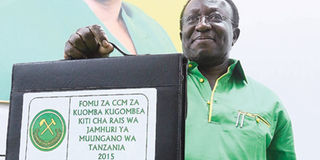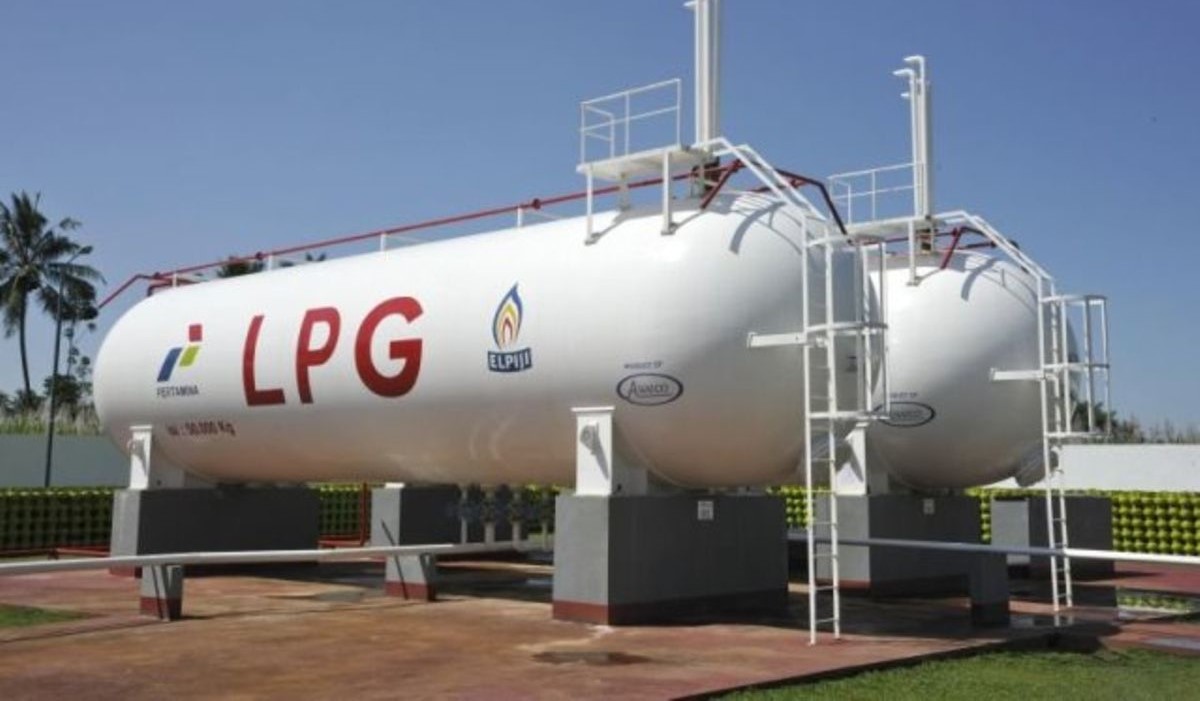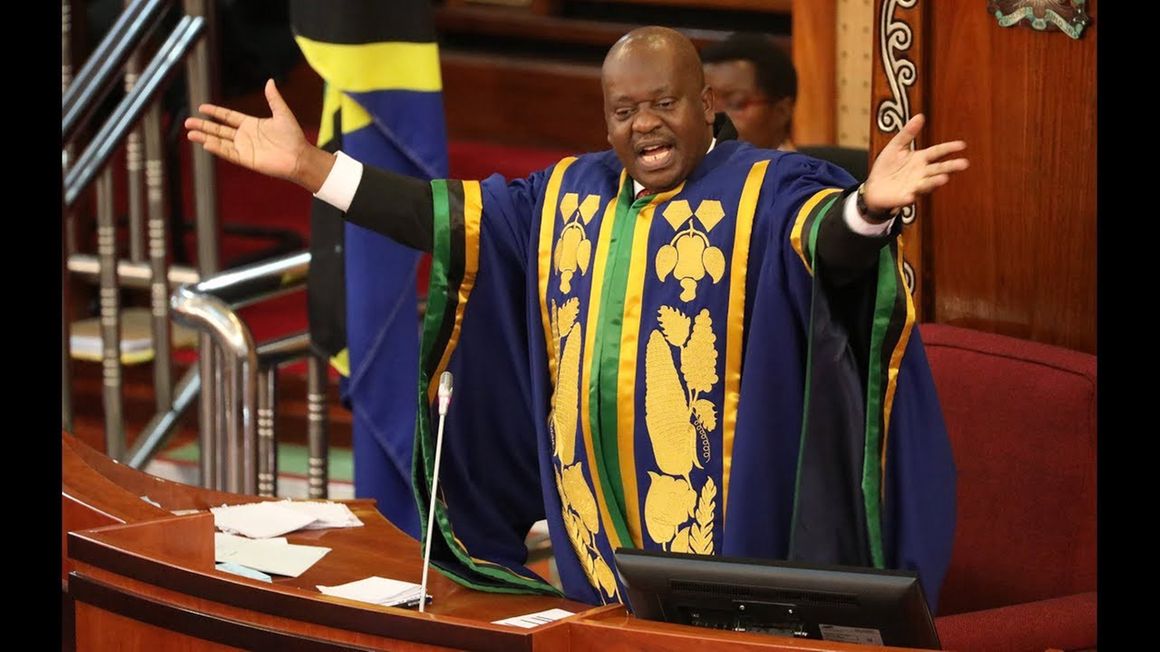Why Mwakyembe brings fresh battle

Dr Harrison Mwakyembe, the minister for East African Co-operation speaks in Dodoma yesterday. PHOTO | Edwin Mjwahuzi
What you need to know:
His entry further complicates matters because the East African Co-operation minister’s key allies are also in the line-up: Mr Samuel Sitta, Prof Mark Mwandosya and Mr Bernard Membe
Dodoma. He chaired the parliamentary committee on the Richmond scandal—a piece of work that ultimately led to the resignation of former premier Edward Lowassa and two cabinet ministers.
And now Dr Harrison Mwakyembe has set his sights on State House, joining an increasingly crowded race to State House.
The Richmond scandal has long haunted the ruling party and the current regime. The pro-Lowassa group reads malice in the sorry business while Dr Mwakyembe and his camp maintain that they conducted themselves fairly and professionally in investigating the matter.
Dr Mwakyembe, coming in at number 37 in the ruling party’s list of those who have picked nomination forms, says he is in the race to give his party a wider base to pick the best candidate.
His entry further complicates matters because the East African Co-operation minister’s key allies are also in the line-up. They include Transport Minister Samuel Sitta, Minister without Portfolio Mark Mwandosya and Foreign Affairs Minister Bernard Membe.
Dr Mwakyembe, a journalist and lawyer-turned-politician, campaigned strongly for Prof Mwandosya in 2005 but President Kikwete emerged the winner.
President Kikwete’s campaign team was chaired by Mr Lowassa, who was pushed into resigning in what the Monduli MP believes to have been revenge because of his active role in the 2005 presidential campaign in the ruling party.
If his allies are to be believed, Mr Lowassa was the victim of a well-planned political battle that was masterminded by those who were not amused by President Kikwete’s victory in the 2005 CCM’s presidential primaries.
But Dr Mwakyembe maintains that he chaired the parliamentary probe team professionally as directed by the House and holds that he had no reason to carry out a vendetta.
Dr Mwakyembe’s entry into the fray cements what was once known as the 11 apostles—a group of CCM lawmakers and ministers who drove the anti-corruption campaign during the post-Richmond scandal until the 2010 general election.
This group has four candidates in the race so far—Dr Mwakyembe, Mr Membe, Mr Sitta and Prof Mwandosya. Word on the ground is that all these men have joined the race in order to form a strong political alliance to curb the power of other key candidates, especially Mr Lowassa.
Yesterday, though, the Kyela MP categorically denied claims that there is bad blood between him and Mr Lowassa over his parliamentary committee reports on the Richmond scandal that led to Mr Lowassa stepping down seven years ago.
At some point, Dr Mwakyembe complained to former IGP Said Mwema that there was a plot to kill him following the revelations in his report that fuelled the resignation of Mr Lowassa and two other cabinet ministers.
The renowned lawyer and journalist also denied claims widely circulated on social media that he had a comprehensive plot to ensure Mr Lowassa does not get the green light in the party’s nomination process.
While he was away in Burundi recently, Dr Mwakyembe reportedly received tips alerting him to messages that supposedly came from him that were insulting Mr Lowassa on social networks.
He told The Citizen: “I was shocked to the extent that I even fell ill. I have never and cannot do such a negative thing. I respect him as my brother and fellow aspirant in the list.”
According to Dr Mwakyembe, the message was fabricated and circulated by supporters of aspirants he declined to mention—but they have been arrested and will soon appear in court.
A Cabinet minister closely associated with the group told The Citizen yesterday, on condition of anonymity: “Whoever sails through in this group will have strong back-up from the other challengers…it’s a well calculated strategy, but whether it works is up to CCM’s top organs.” Speaking shortly after picking the nomination forms, Dr Mwakyembe said he was fit enough for the top job, given his political experience.
Other aspirants have shown up to pick up the forms with their spouses but Dr Mwakyembe explained that his wife did not accompany him because she was unwell.
The minister, who was in a jovial mood when he arrived at the CCM offices, joins 36 other cadres from CCM who have so far collected the forms for the party’s nomination.
Dr Mwakyembe reckons he has a rich and vibrant political experience that could be put to use promoting good governance and development. He adds: “As an active member of CCM, it is my constitutional right to vie for the post, given the fact that I have what it takes to handle the post. CCM is a school for democracy and I have decided to join other colleagues on the aspiration list to promote democracy.”
He pledged that he would take a firm stand on promoting and safeguarding the party’s manifesto. “The fourth government under President Jakaya Kikwete has attained remarkable achievements, including good policies, and I would make sure such sound development is taken to the next level.”
The minister added that he had contributed to the country’s development in the country and he was also aware of many things pertaining to the country’s economy and that such a situation gave him desired merits for handling the post efficiently.
Being an activist against corruption in the country, Dr Mwakyembe added, he would fight hard against corruption and all forms of impunity among leaders if he had the chance.
“I am a person who never tolerates stupidity, including corruption,” he added, “I will ensure that all unscrupulous leaders have no chance to misuse taxpayers’ money.” Nevertheless, shortly after Mr Sitta succeeded Dr Mwakyembe in the ministry of transport, he discovered shoddy deals worth billions of shillings that were executed under the watch of the Kyela MP.
The Citizen could not independently verify whether Dr Mwakyembe was in any way involved in these scandals that also involved the procurement of fake railway wagons worth $200 million.


